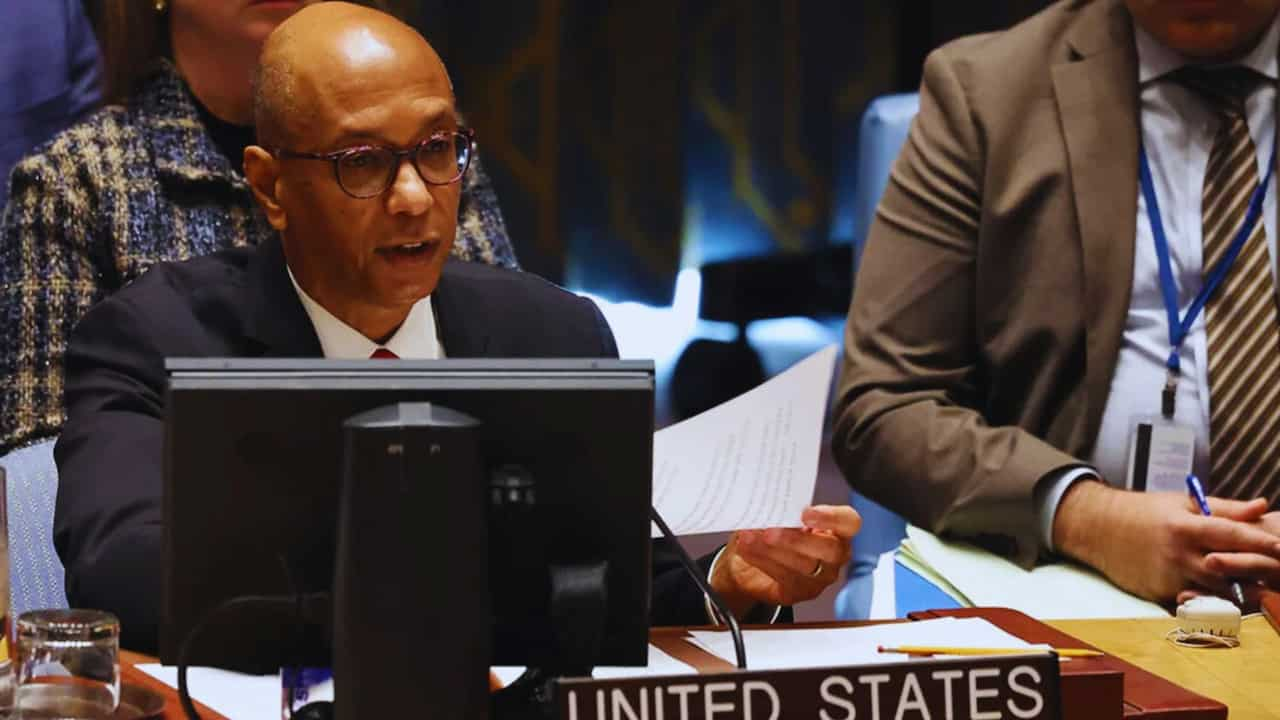US Stands Alone: Vetoes Critical Gaza Ceasefire Resolution at UN Security Council
In a dramatic turn of events at the United Nations headquarters in New York, the United States cast the sole opposing vote against a crucial Security Council resolution calling for an immediate ceasefire in Gaza. The decision marks the fourth time Washington has used its veto power to shield its ally Israel during the ongoing conflict.
The resolution, backed by an overwhelming majority of 14 Security Council members, demanded an “immediate, unconditional and permanent” end to the war that has ravaged Gaza for over 13 months. Deputy US Ambassador Robert Wood explained the veto, stating that the resolution failed to link the ceasefire with the release of hostages still held in Gaza.
“These two urgent goals are inextricably linked,” Wood emphasized, adding that the resolution would have sent a “dangerous message” to Hamas. Seven American citizens remain among the hostages in Gaza.
The international response to the US veto was swift and critical. China’s ambassador pointedly asked whether Palestinian lives held any value, while France condemned the trampling of international humanitarian law. The UK, despite traditionally aligning with US positions, joined the majority in supporting the resolution, marking a significant shift in diplomatic dynamics.
The human cost of the conflict continues to mount. According to Gaza’s health ministry, more than 43,920 Palestinians have lost their lives since the war began. The conflict erupted after Hamas’s October 7 attack on Israel, which claimed approximately 1,200 Israeli lives and saw 253 people taken hostage.
The humanitarian situation in Gaza has reached critical levels. The UN recently warned that Palestinians face “diminishing conditions for survival” in northern Gaza, with virtually no aid reaching some areas for over 40 days. Experts now warn of an imminent famine risk in parts of the territory.
Human Rights Watch delivered perhaps the harshest criticism, accusing Washington of using its veto power to “ensure impunity for Israel” as its forces continue operations in Gaza. Israel has consistently rejected these accusations.
The Security Council’s composition of five permanent members with veto power and ten elected members highlights the complex power dynamics at play. While Council resolutions are considered international law, their enforcement depends heavily on member states’ cooperation.
The Biden administration’s diplomatic isolation on this issue has raised concerns about its international standing. Richard Gowan, UN director of the International Crisis Group, noted that this decision “will sadly further weaken Biden’s reputation in the UN bubble,” marking a significant shift from his initial welcome as Trump’s replacement.
The two-page resolution also called for:
- Withdrawal of Israeli troops from Gaza
- Increased humanitarian aid delivery
- Support for UNRWA operations in Gaza and the West Bank
As the international community grapples with this diplomatic deadlock, the suffering in Gaza continues unabated. The US veto not only highlights the growing divide between Washington and its traditional allies but also raises questions about the effectiveness of international institutions in resolving complex geopolitical crises.
With famine looming and civilian casualties mounting, the pressure for a diplomatic solution intensifies. Yet, as this latest Security Council vote demonstrates, finding common ground between opposing sides remains a formidable challenge in one of the world’s most intractable conflicts.
